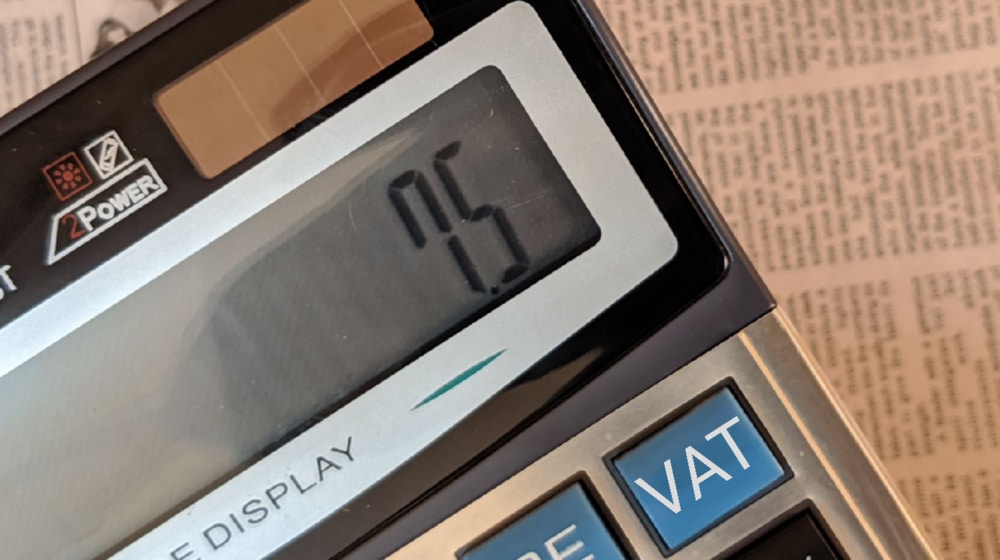Overview
The 2020 Finance Act has its drawbacks, which is primarily caused by the increase in Value Added Tax (VAT) from 5% to 7.5%. For this reason, this article would shed more light on the ripple effects of VAT increase in Nigeria.
Previously, we analysed how the 2020 Finance Act would affect your business, and we focused mostly on the positives and how it affects you as a business person. However, in this article we will capture how the Finance Act (2020) affects you as a consumer.
I would enunciate these drawbacks shortly, but lets begin with its favourable effects.
Effect VAT Increase in Nigeria on Revenue
On the bright side, VAT increase in Nigeria will generate more revenue for Nigerian government. This would reduce the dependence on external borrowing to execute governmental budgets. It can also be used to foster development across several sectors in the Nigerian economy.
For instance, such funds can be utilized to finance more Command and Control Centres for Nigerian Police, like the newly commissioned Police National Command and Control Centre (NPF-C4i), to enhance internal security in the country.
Moreover, the additional financial obligation incurred by the government as a result of an upward review of emoluments (e.g., minimum wage implementation) can be sustained by the excess revenue recovered from VAT increase in Nigeria.
That said, let’s take a look at the negative effects of VAT increase in Nigeria.
Effect of VAT Increase in Nigeria on;
Inflation Rate
Sadly though, VAT increase in Nigeria is like a double edged sword. This will shoot up the prices of goods and services in the country. Since service providers will increase their prices to compensate for the extra VAT paid to purchase the goods and services sold or rendered to Nigerians.
In all honesty, every Nigerian that buy or consume any product indirectly pay VAT, which is why it is nicknamed consumer tax.
Electricity Bills
Electricity tariff is already on the high side as it is. VAT increase in Nigeria would further create a chronic discomfort for many Nigerians.
On elevating electricity rate from April 2020, the Nigerian Electricity Regulatory Commission (NERC) and the power Distribution Companies (DisCos) recently rolled out the tariff order which will be implemented by the first half of the year.
An evaluation of the documents revealed that on the average, the increase is between N15 to N20 for all the power distribution companies.
Telecommunication
Additionally, network providers already have a tenacious grip on the market. The purchase of airtime and/or subscribing to the internet has a become major habit even at the expense of basic necessities. An increase in VAT rate will lead to an increase in their tariffs.
MTN, Airtel, Glo, 9mobile and others will definitely make sure their customers are involved in paying the increase in VAT rate. Hence, we will buy airtime and get VAT inclusive notification.
Manufactured Products
Furthermore, manufacturers’ would respond to VAT increase in Nigeria bidirectionally. In a bid to retain their markup they could either reduce the quantity or quality of their products, or increase their selling price to compensate for extra VAT.
We, the consumers, are left to bear the cost burden of an increase in VAT as usual.
Other Effects of 7.5% VAT Rate in Nigeria
Here are other implications of a 7.5% VAT rate.
Flight Tickets
Whenever you take a flight from one destination to another, your flight tickets are VAT inclusive. VAT increase in Nigeria would also lead to an increase in the cost of tickets.
Shopping Malls
Groceries and other items sold in shopping malls would would be expensive due to the increase VAT. A 7.5% VAT rate would lead to a rise in the prices of these goods.
Established Eatery
This would also affect the prices of services rendered by established eatery. I do know that junkies and fast foods aren’t healthy enough for frequent consumption. Still and all, from time to time I do indulge myself. And Chicken Republic have proved to be a wonderful companion. Their consistency in quality across several states in Nigeria is one to admire. For being a loyal customer, maybe I’ll be exempted from paying the extra VAT . Lol.
Cinemas
Yeah, Cinemas won’t be left out, as the cost for movie tickets would experience an upward shift. This would hurt especially if you’re a movie lover.
Banks
The last time I requested for an ATM card in Nigeria, I was charged N1,000 plus VAT N50. Now that too would increase, probably to N75. That may seem small though. But how this would affect the extra regular charges in the form of an imaginary “Card Maintenance Fees,” is just as unpredictable as the fee itself.
VAT increase in Nigeria would also affect the SMS charges that is deducted from our bank accounts monthly.
Nigerian Stock Exchange
Currently, we all pay 5% VAT on transactions we make on Nigerian Stock Exchange (NSE). And that 5% on the brokerage fee instead of the total proceed. Come the effective date of the Finance Act, the VAT paid would increase to 7.5%.
Impact of VAT on Economic Growth
Some time ago, Kenyan government eliminated VAT on all off-grid home solar system imports. This undisputedly stimulated the import market. This was one of the major thrusts that mitigated the power capacity gap in Kenya. It has also enabled manufacturers to obtain more power supply.
Moreover, increased electricity means a reduction in the cost of autonomous power generation. This in effect diminished the overall cost of manufacturing products (off grid solar system batteries and non-solar products), thereby promoting the green economic growth cycle.
During the last decade, Kenya also reduced the import tariffs on raw materials used to produce off grid solar system batteries equipment. This initiative enhanced the competitive level of domestic products.
In view of the foregoing, it is clear that tax rates can lead to a chain reaction. We have been able to dissect the ripple effects of an increase of VAT from 5% to 7.5% have on the Nigerian economy. How, then, would it affect foreign direct investment (FDI)? Do you think it would stimulate foreign investors to venture to the Nigerian market?
The Bottom Line
There is, however, an unhealthy level of inconsistency in the policies made by Nigerian Government. VAT increase in Nigeria is rather counterproductive in Nigerian system. In order to attain its goals, Government need to improve in the provision of basic amenities for its citizens. Also, there is a need to promote transparency in the use of governmental funds.
Taxation is a quid-pro-quo process. Therefore, the citizens would be willing pay such increase in taxation only if the government reciprocate with better governance.
For instance, the US government return a portion of the revenue derived from taxes to citizens who didn’t earn enough money per year, in what they call tax return. The federal government should borrow a leaf from that.
Zerofy Editorial is a team of writers determined to provide evergreen content to millions of readers worldwide.





